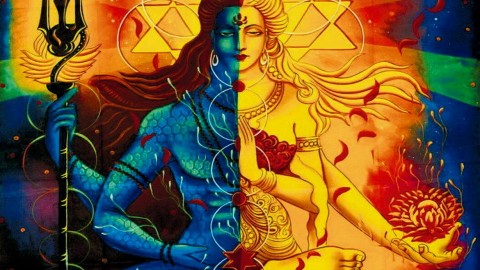Be Patient – In Gita Verse 1.5 There are also great heroic, powerful fighters like Dhṛṣṭaketu, Cekitāna, Kāśirāja, Purujit, Kuntibhoja and Śaibya.
Bhagavad Gita Verse 1.5 highlights great heroic and powerful fighters like Dhṛṣṭaketu, Cekitāna, Kāśirāja, Purujit, Kuntibhoja, and Śaibya. In the context of this verse, it is essential to delve into the significance of patience, especially in the face of adversity and strategic planning.
Duryodhana, in his arrogance, failed to consider the possibility of winning the war. His attempt to insult Dronacharya, his teacher, and demoralise his own army stemmed from a lack of patience and foresight. Rather than focusing on the resources and strengths at his disposal, he succumbed to fear and impatience.
It is easy to fall into the trap of focusing on what we lack rather than what we have. To become truly aware, one must hold back judgement and exercise patience. This principle is emphasised across various religions, underscoring the importance of pausing and reflecting before taking action. However, this pause must not lead to inaction. Inaction, driven by the fear of failure and the unknown, prevents us from utilising our intellect and taking responsibility for our thoughts and actions.
Duryodhana’s impatience prevented him from analysing the present situation and exploring available possibilities. In contrast, the Pandavas demonstrated patience and strategic planning. They meticulously monitored their resources, identified their strengths and weaknesses, and devised strategies to address any shortcomings. Their focus was on effectively utilising their limited resources in the present moment, rather than being solely preoccupied with the war’s outcome.
Karma operates in the present moment, and our actions now shape the future. Impatience, on the other hand, can be a significant hindrance. It takes tremendous understanding and awareness to overcome impatience, as it often leads to hasty decisions and missed opportunities. Whether in scientific research or spiritual seeking, patience is of paramount importance.
Thomas Edison, the inventor of the first electric bulb, exemplified the value of patience. For three years, he tirelessly experimented, despite numerous failures. His colleagues and disciples, driven by impatience, gradually abandoned the project. However, Edison viewed each failure as a step closer to success. He believed that eliminating wrong doors brought him nearer to the right one. His unwavering patience and determination eventually led to the invention of the electric bulb, a testament to the power of persistence.
Edison’s journey highlights the importance of patience for genuine seekers. After years of relentless effort, he discovered the electric bulb, a moment of wonder and achievement. His patience paid off, and he became the first person to witness the marvel of electric light. This story underscores that patience is an essential quality for achieving great things.
Patience is not just a virtue but a profound religious quality. It requires deep trust and the ability to wait without hurry or impatience. Impatience, on the other hand, reflects a lack of trust and a desire to impose one’s will. True patience means surrendering one’s will to a higher power and trusting that everything will unfold in its own time.
In the context of the Mahabharata, both the Pandavas and the Kauravas were engaged in the war. Duryodhana’s impatience and desire for immediate results contrasted with the Pandavas’ patient and focused approach. The Pandavas were fully present in the moment, concentrating on the actions needed to achieve their goals. This focus on the present moment allowed them to act with patience and clarity.
Patience is the greatest religious quality, and those who possess it need nothing else. It embodies hope, trust, and the absence of hurry. Impatience, on the other hand, signifies a lack of trust and an attempt to impose one’s will on the divine. Patience means surrendering to the divine will and trusting that everything will happen at the right time.
All forms of meditation and prayer are acts of waiting, requiring infinite patience. The Pandavas’ ability to remain patient and focused on their actions in the present moment ultimately contributed to their success. In contrast, Duryodhana’s impatience and lack of focus on the present moment led to his downfall.
Patience is a profound quality that enables individuals to navigate challenges, make informed decisions, and achieve their goals. It requires trust, awareness, and the ability to focus on the present moment. By cultivating patience, we can overcome obstacles, make better choices, and ultimately achieve success in our endeavours.
Tags: Be Patient





